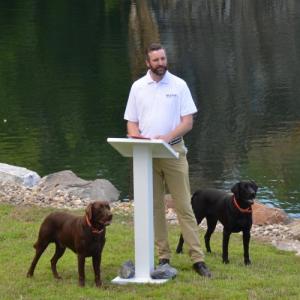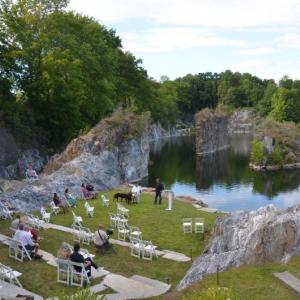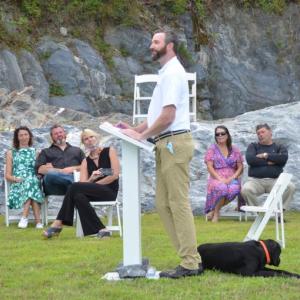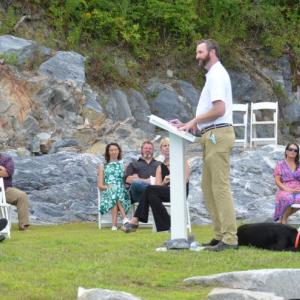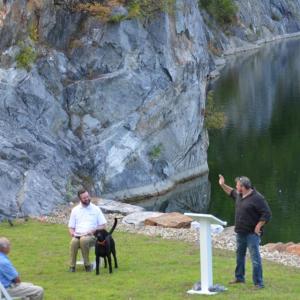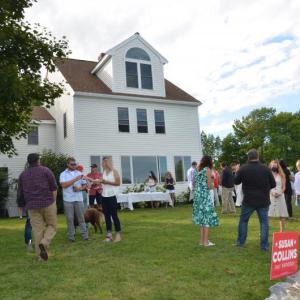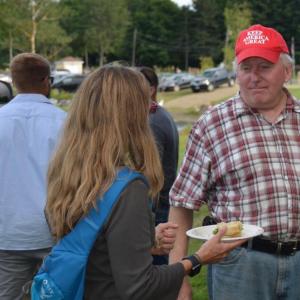Michael Mullins announces campaign for House District 93 (Owls Head, Rockland) on Republican ticket
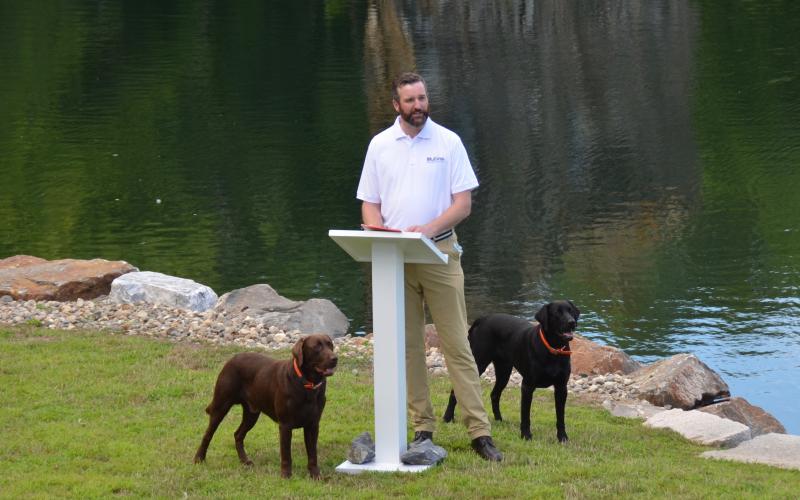 Michael Mullins, of Rockland, has thrown his hat into the ring to represent Owls Head and Rockland in the Maine State Legislature. (Photo by Lynda Clancy)
Michael Mullins, of Rockland, has thrown his hat into the ring to represent Owls Head and Rockland in the Maine State Legislature. (Photo by Lynda Clancy)
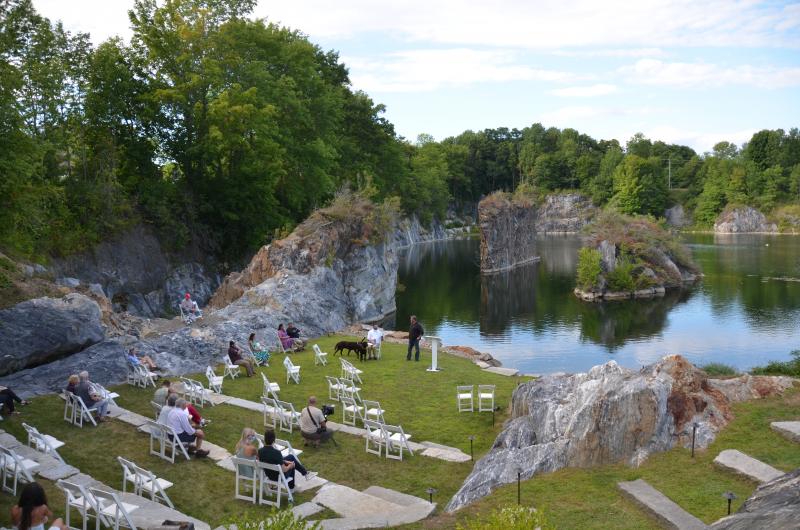 Mullins made his candidacy announcement at his Rockland home, the site of a former quarry. (Photo by Lynda Clancy)
Mullins made his candidacy announcement at his Rockland home, the site of a former quarry. (Photo by Lynda Clancy)
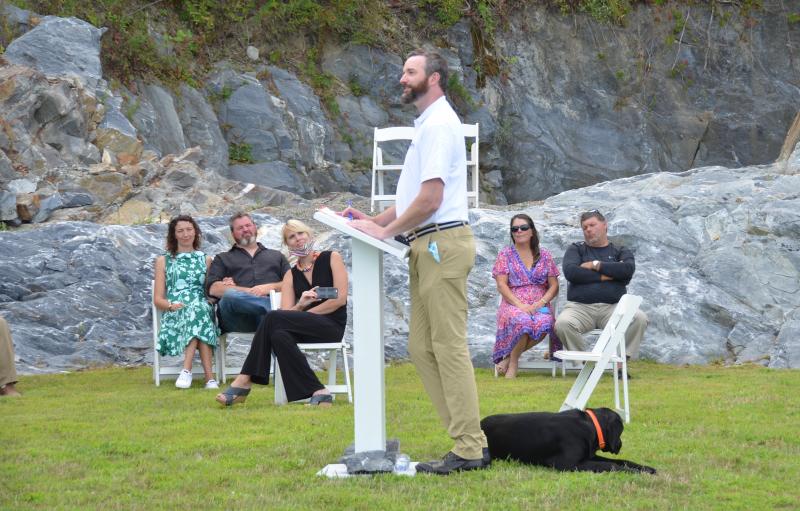 Mullins talks to a group of supporters who are scattered in a natural amphitheater on his Rockland quarry property. Seated to his right is campaign manager Marci Casas and treasurer Peter Overlock. (Photo by Lynda Clancy)
Mullins talks to a group of supporters who are scattered in a natural amphitheater on his Rockland quarry property. Seated to his right is campaign manager Marci Casas and treasurer Peter Overlock. (Photo by Lynda Clancy)
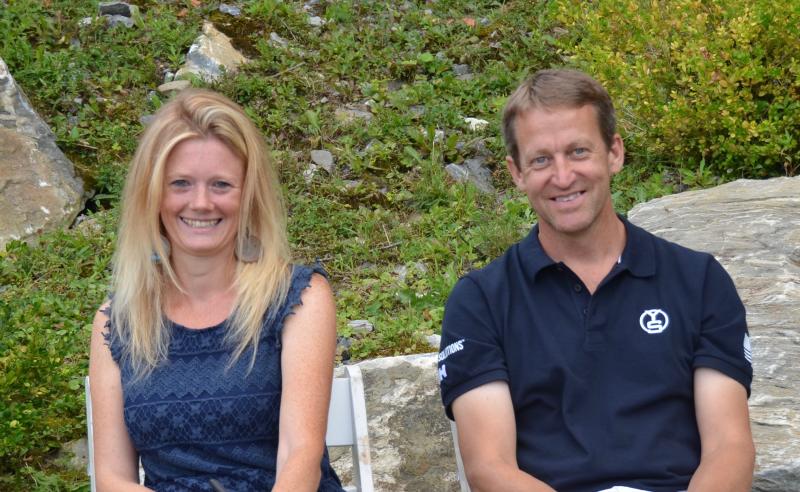 Alison McKellar and Vincent Jones. (Photo by Lynda Clancy)
Alison McKellar and Vincent Jones. (Photo by Lynda Clancy)
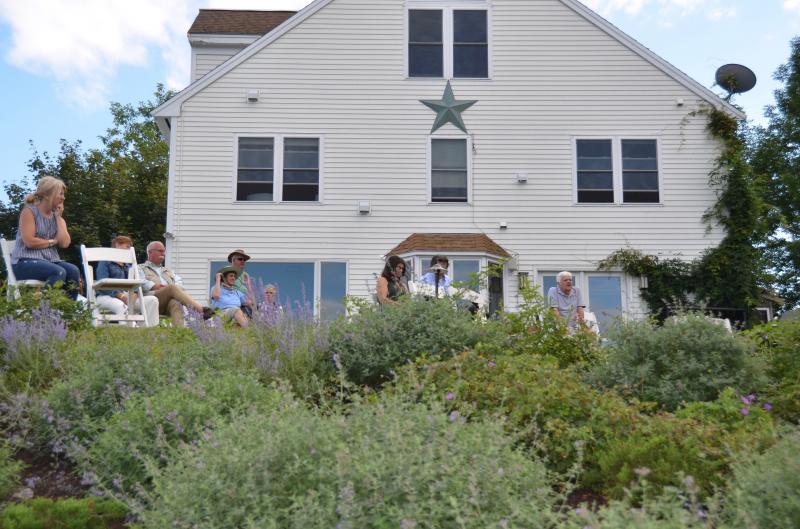 Mullins encouraged those who attended his announcement event to take signs supporting him, with them. (Photo by Lynda Clancy)
Mullins encouraged those who attended his announcement event to take signs supporting him, with them. (Photo by Lynda Clancy)
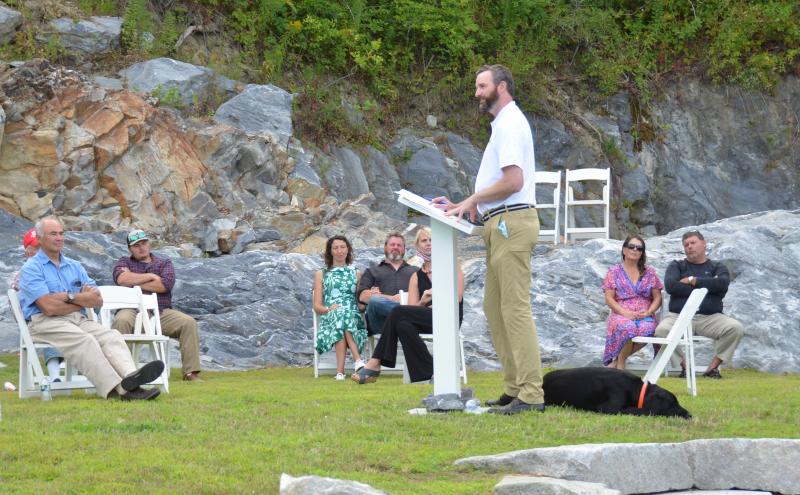
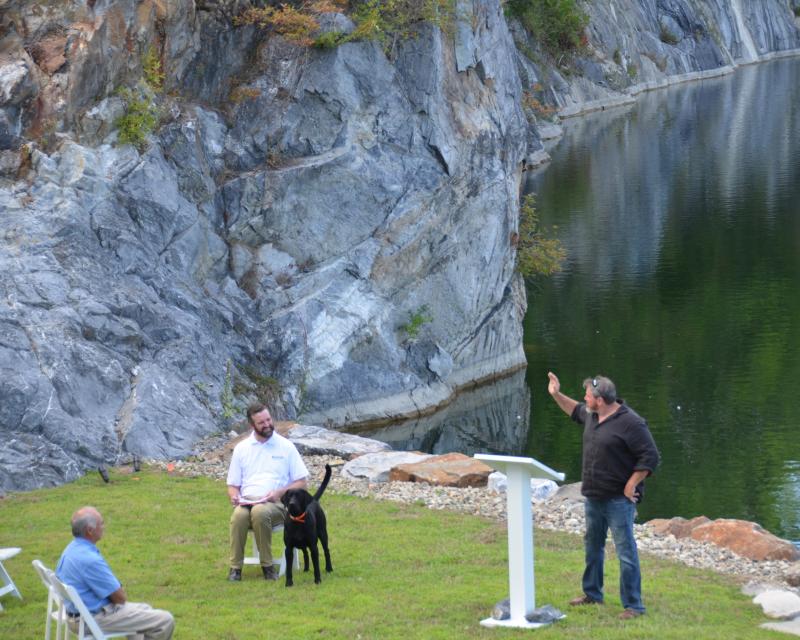 Peter Overlock, who is treasurer for the Mullin’s campaign, introduces him to the group. (Photo by Lynda Clancy)
Peter Overlock, who is treasurer for the Mullin’s campaign, introduces him to the group. (Photo by Lynda Clancy)
 Cortney Sukeforth. (Photo by Lynda Clancy)
Cortney Sukeforth. (Photo by Lynda Clancy)
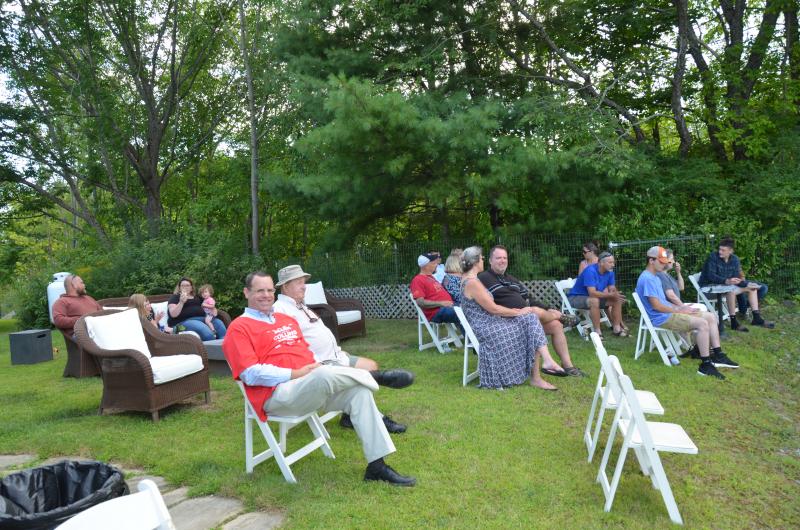 Supporters gather for the announcement. (Photo by Lynda Clancy)
Supporters gather for the announcement. (Photo by Lynda Clancy)
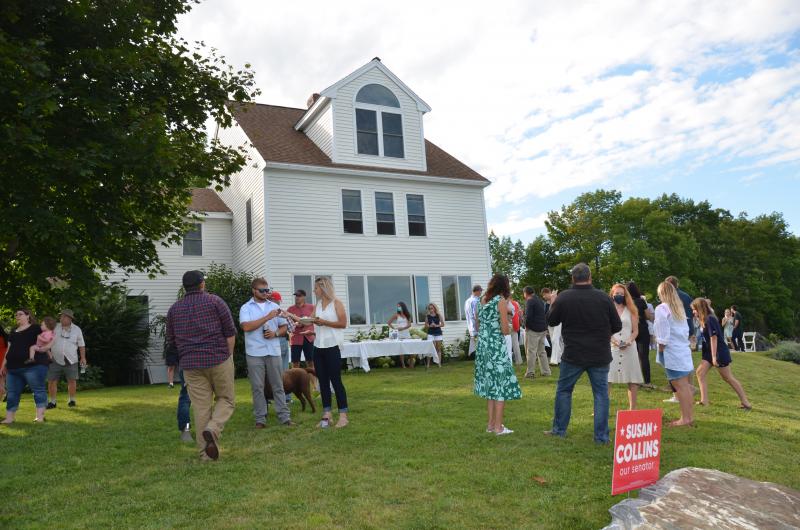 (Photo by Lynda Clancy)
(Photo by Lynda Clancy)
 (Photo by Lynda Clancy)
(Photo by Lynda Clancy)
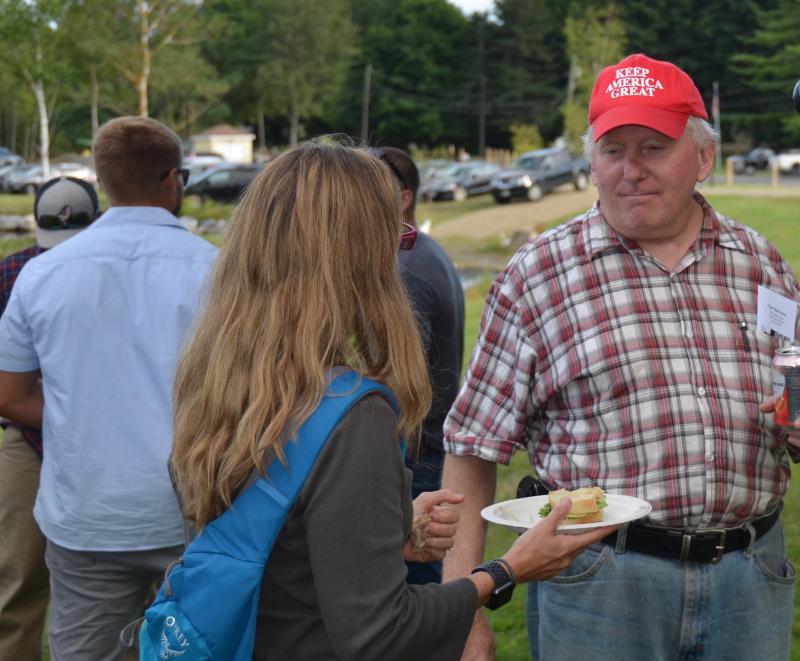 (Photo by Lynda Clancy)
(Photo by Lynda Clancy)
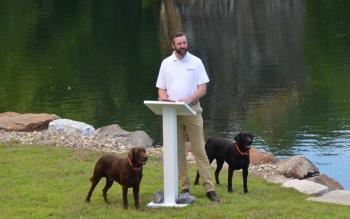 Michael Mullins, of Rockland, has thrown his hat into the ring to represent Owls Head and Rockland in the Maine State Legislature. (Photo by Lynda Clancy)
Michael Mullins, of Rockland, has thrown his hat into the ring to represent Owls Head and Rockland in the Maine State Legislature. (Photo by Lynda Clancy)
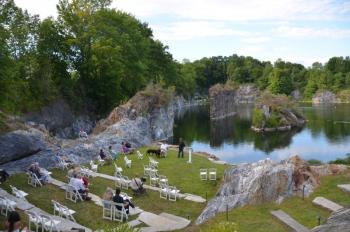 Mullins made his candidacy announcement at his Rockland home, the site of a former quarry. (Photo by Lynda Clancy)
Mullins made his candidacy announcement at his Rockland home, the site of a former quarry. (Photo by Lynda Clancy)
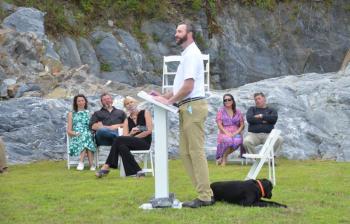 Mullins talks to a group of supporters who are scattered in a natural amphitheater on his Rockland quarry property. Seated to his right is campaign manager Marci Casas and treasurer Peter Overlock. (Photo by Lynda Clancy)
Mullins talks to a group of supporters who are scattered in a natural amphitheater on his Rockland quarry property. Seated to his right is campaign manager Marci Casas and treasurer Peter Overlock. (Photo by Lynda Clancy)
 Alison McKellar and Vincent Jones. (Photo by Lynda Clancy)
Alison McKellar and Vincent Jones. (Photo by Lynda Clancy)
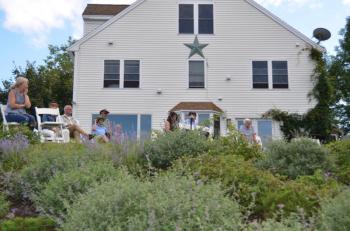 Mullins encouraged those who attended his announcement event to take signs supporting him, with them. (Photo by Lynda Clancy)
Mullins encouraged those who attended his announcement event to take signs supporting him, with them. (Photo by Lynda Clancy)

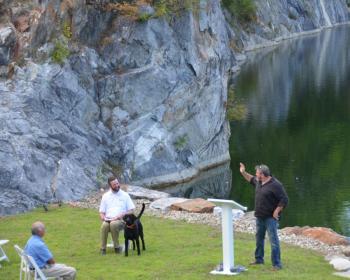 Peter Overlock, who is treasurer for the Mullin’s campaign, introduces him to the group. (Photo by Lynda Clancy)
Peter Overlock, who is treasurer for the Mullin’s campaign, introduces him to the group. (Photo by Lynda Clancy)
 Cortney Sukeforth. (Photo by Lynda Clancy)
Cortney Sukeforth. (Photo by Lynda Clancy)
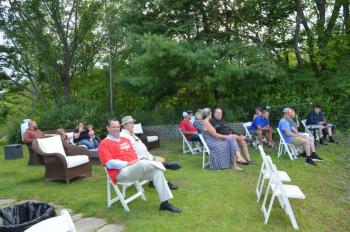 Supporters gather for the announcement. (Photo by Lynda Clancy)
Supporters gather for the announcement. (Photo by Lynda Clancy)
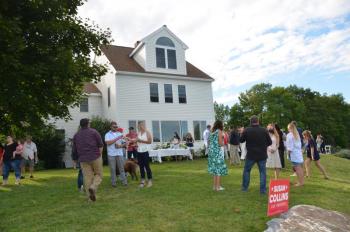 (Photo by Lynda Clancy)
(Photo by Lynda Clancy)
 (Photo by Lynda Clancy)
(Photo by Lynda Clancy)
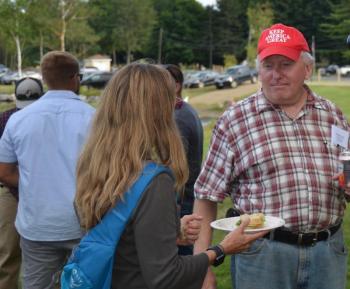 (Photo by Lynda Clancy)
(Photo by Lynda Clancy)
ROCKLAND — Standing at the edge on a former quarry, now filled with water and happily frequented by waterfowl, Rockland resident Michael Mullins told a group of supporters, and the larger public, that he is seeking election to the Maine State Legislature. He is running against Valli D Geiger, D-Rockland, in the Nov. 3, 2020 elections.
The announcement was made in an amphitheater sculpted from the once industrial environment, the old Tennyson Quarry that lie between Route 17 and Cedar Street. Mullins has been working on the 20 acres since 2009, reshaping the landscape and restoring the natural ecology there, one step at a time.
Speaking from a podium and flanked by his campaign manager, Marci Casas, and treasurer, Peter Overlock, Mullins spoke about a larger vision not just for the Midcoast, but for Maine and the country.
He talked of being a steward the environment, as well as the economy. He reached back in the collective American history, to Maine’s early days as a self-reliant and resource-driven state, to the world stage following World War II, the more recent half century of financial uncertainty for the working and middle classes, the rising national debt, and civil unrest.
Mullins, who owns Mullins Management Company, a privately-held real estate development, management, and investment firm based in Braintree, Mass., also touched upon his personal roots.
“People ask me, ‘why would you want to run for office,’” he said. “Well I’ve been reflecting back on my late mother. I know that she was proud of me when I moved back to Maine. She was a Mainer. She loved her state. She loved this country. She believed in equality, and she instilled that in me. And I reflected on her passing, I just feel this pull. I believe that good people in a position to help solve problems need to do something. I’m just trying to do everything I can.”
Mullins arrived in Maine more than a decade ago to live fulltime, investing in his Rockland property. He has since been active in helping the effort to retain and repurpose the former Mary E. Taylor school building in Camden, and has set up a pop-up personal protective equipment manufacturing space in an old MBNA warehouse in Camden.
On his campaign Facebook page, he characterizes himself as an: “Entrepreneur, Community Organizer, and Dog Dad. Passionate about growing Maine's workforce, economy, and quality of life.”
His campaign launch, Aug. 22, was held outdoors, as attendees scattered along the walls, chairs and grass to listen to Mullins’ brief talk.
The following is Mullins’ Campaign Launch Remarks, in entirety.
Environment
Thank you for joining me here on this beautiful day, in this beautiful place. This coast has captured the imagination of locals and visitors alike for generations. The limerock was cut by hand, beginning in the late 1800’s. It was hauled out by horse and wagon, and then later on by train. This quarry is a piece of living history and a monument to the rugged resilience that made this region.
This place inspires me every day. I wake up each morning and look out those windows. I just love this place so much. Like all Mainers here on the coast, in the mountains, or in the woods, I cannot separate the wonders of nature from the sense of place that is here.
The truth is I don’t really own this place. Not really. I’m its caretaker. My work here is that of a conservationist, in the literal sense of the word.
What does conservation mean? There’s confusion about that today. It is sometimes misused as preservation, or isolation. To not use and not touch. That couldn’t be farther from the truth. Conservation means to use wisely, responsibly, with intention.
And that’s what we have done here, at the quarry. This was an industrial site. And it’s not like they fixed the place up before they left. They just stopped work one day and left it like that. When I got here, the water had a foul smell. That whole soft edge over there was exposed clay with a vertical erosion zone. It was so cloudy at times it’s like you stick your arm in and you couldn’t see your fingers.
Pete, my treasurer, and I worked hard for over a year, first cleaning the quarry, and we found all kinds of things in here. We found an old round front refrigerator, a toilet, metal drums, about 1,000 feet of steel cable. We restored the edge of the pond, placing erosion control, building a man-made wetland and finally, seeding the landscape and I now cultivating.
This is the work of a conservationist. To take care. To use wisely and sustainably. For the future. And as Mainers we understand this, intuitively. We live close to the land. We are hunters and fishermen. We are loggers and farmers, beachcombers, foragers. We hate to see waste, misuse, and neglect of our natural resources. We use out resources wisely because that is our way of life.
And while we cleaned this place up, we also produced things. We produced firewood, limestone, a whole mountain of compost. We continue to cultivate lupines, fish, wild birds.
Economy
Just as we steward the environment, we too steward our economy.
This is a time of confusion about our place in the world, and about the foundations of economic freedom. Leading political candidates propose outright communist ideas, and almost 40% of college students have a positive view of socialism.
And I think I understand why. The world is turning under our feet. There is a growing sensation over the last 50 years we are somehow falling behind. The rewards of free trade seem disproportionately distributed. We’ve nearly lost entire industries. Individual debts mount higher every year. The national debt is out of control. I think those things have people asking, has economic freedom failing us?
The answer is no. The explanations of our current problems go back to World War Two. After the war, this country rose to become the factory for the world, while nearly 1/3 of the world fell under the curtain of Socialism.
The Soviet Union, China, and their satellites fell to communism or despotism, and cut themselves off almost completely from the rest of the world, and a newly liberated India fell under a kind of socialist bureaucracy. The results were disastrous. while the free countries saw wonderous technological progress and rising standards of living. millions living under socialism died of abuse and famine, or impoverished, struggled with shortages of basic necessities.
And then the most remarkable thing happened. One by one, the socialist regimes began to reform their economies to be more like ours. Seeing that they were being left behind, China, Russia, India, Vietnam, and others began to allow economic freedom.
A Tide of Labor
By the 1990s, over a billion people in China, and another billion in India and Russia, opened to the global economy. As the free world, we welcomed this positive development. It’s just that no one predicted the enormous disruption to our industries.
Some people blame foreign government subsidies or currency manipulation, but the explanation is very simple. A billion factory workers, willing to work for as little as a dollar a day joined the global economy practically overnight.
And as they did, a wave of textiles, chemicals, metals, and consumer goods came in a rising flood. Imports of commodities like steel doubled every year, an unsustainable pace that emptied entire cities in the Midwest.
And this rapid displacement has caused working Americans to question their own economic security. Politicians have tapped into that insecurity, promising to stop the bleeding. And the country is now largely divided into a creative class benefitting from globalization, and a working class that is struggling.
But is the future bleak for American industry? I’m here to tell you today, unequivocally, that it is not.
I see a bright future for America.
If you can look past this present confusion, I believe that not only is trade stabilizing, we are heading into the greatest period of growth in output, wealth, and prosperity this country has ever experienced.
After decades of a one child policy, China’s population is rapidly aging. Their workforce has shrunk now for 9 years straight, since 2011, and the result has been a steady increase in wages. Japan’s population is falling even faster. It’s expected to fall 20% by 2040, and Russia’s population is expected to fall by 1/3 by 2050.
As these developing world populations shrink, wages will equalize. As they do, manufacturers are looking to ‘onshore’ more manufacturing jobs.
As the labor balance is restored, our manufacturing industry is not just going to rebound. The United States is poised to enter into another Golden Age of manufacturing. And it will be driven the most powerful technology ever seen – automation.
Paranoid technophobes on the west coast warn us of a jobless future, with this new technology sure to eliminate all American jobs. This has never been the case. Every wave of technology – the cotton gin, the mechanical loom, the steam shovel, has led to more jobs than existed before.
We have almost completely mechanized sewing, yet there are more people working in textiles than ever before. We no longer run teams of oxen and horses, yet there are more people working in transportation than at any point in world history.
This is because each new technology serves only to multiply the work done by a single person, dropping prices, and stimulating yet more growth.
Automation will eventually allow the United States to reduce its labor costs to equal or less than that of Asia. And when it does, the innovation and productivity of the American worker will cause every industry here to flourish.
My vision is of a new, entrepreneurial economy where automated labor allows Americans to start new businesses, invent, pivot, and produce with blinding speed and flexibility.
But to make that happen we have to shed corporatism. We have to stop bailing out big business. We need to stop banks from getting bigger, we need to break up big healthcare, and we need to stop insuring corporate profits on the back of the taxpayer. We need to put the little guy first. And small business first.
Race and Civil Rights
Just as no one saw the economic changes following the war, no one saw the incredible political changes to come thereafter.
In 1945, Germany and France had fought two bloody world wars. There was mutual animosity and distrust. Would anyone have predicted then that 70 years later, Germany and France would lead the effort to create a federal Europe, replete with a single European currency and a European armed force? This was unimaginable in 1945.
We now have cemented peace in Europe, between its different cultures. But can we find peace in our own country?
We are experiencing terrifying, turbulent times in America. Not one person here today isn’t horrified by the meaningless deaths we see on television, fellow citizens abused and stripped of their rights, their property, or their lives. We watch violent protests in the streets, and we wonder it if will ever end. If the divisions of race in the country can ever be healed.
I have a vision that one day we will heal these divides. Just as we look back and cannot fathom today Germany and France at war with each other, we will one day be unable to fathom black and white as anything but brothers. This is my vision. A post-racial America.
We will achieve that vision. But it will not come from division, rhetoric, and violence. It will instead come from a tireless dedication on every American’s part to the defense of civil rights. To ongoing, continuous progress, and to the reforms necessary to counter injustice.
And my vision is that this united people, this American race, will unite to tackle the great problems facing mankind. That together we will lead the way and apply the limitless potential of American ingenuity to solve poverty, and global conflicts, and lead the world into the bright future before us.
Closing
People ask me, why would you want to run for office? Well I’ve been reflecting back on my late mother. I know that she was proud of me when I moved back to Maine. She was a Mainer. She loved her state. She loved this country. She believed in equality, and she instilled that in me. And I reflected on her passing, I just feel this pull. I believe that good people in a position to help solve problems need to do something. I’m just trying to do everything I can.
I believe I can go to Augusta and find practical solutions that benefit the people of Maine. And push for the kind of common-sense reforms that will streamline the bureaucracy and make every single government program more effective, so that it can work for us.
I love this state so much. I will never give up on the people of Maine. And I will never give up on this community.
As I take this first step forward, I don’t know where this path will take me, or how far I will go. But I know I will always remember this day, and I will remember you for being here with me. Thank you so much for joining me today. Thank you so much.
Reach Editorial Director Lynda Clancy at lyndaclancy@penbaypilot.com; 207-706-6657
Event Date
Address
United States

